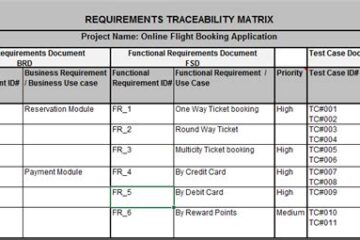Introduction
YINCAE Advanced Materials, LLC, a leading manufacturer of high-performance adhesives and materials, has developed a revolutionary cryogenic die attach material that can withstand temperatures as low as -273°C without delamination. This groundbreaking development has the potential to transform various industries, including aerospace, quantum computing, and scientific research, where ultra-low temperature applications are crucial.
The Challenges of Cryogenic Die Attach Materials
Cryogenic temperatures, which are typically below -150°C, pose significant challenges for die attach materials. At these extreme temperatures, most conventional adhesives become brittle and lose their bonding strength, leading to delamination and device failure. This limitation has hindered the development of advanced technologies that require reliable operation at ultra-low temperatures.
Coefficient of Thermal Expansion Mismatch
One of the primary challenges in developing cryogenic die attach materials is the coefficient of thermal expansion (CTE) mismatch between the die, substrate, and adhesive. As temperature decreases, materials contract at different rates, leading to stress and strain at the interfaces. If the CTE mismatch is significant, it can cause delamination and compromise the integrity of the bonded assembly.
Embrittlement and Loss of Adhesion
At cryogenic temperatures, most adhesives become brittle due to the reduced molecular motion and increased intermolecular forces. This embrittlement can lead to cracking and loss of adhesion, especially when subjected to thermal cycling or mechanical stress. Conventional die attach materials, such as epoxies and silicones, are particularly susceptible to this issue.
YINCAE’s Breakthrough: Cryogenic Die Attach Material
YINCAE’s cryogenic die attach material overcomes these challenges through a unique combination of advanced chemistry and proprietary formulation. The material exhibits exceptional performance at temperatures as low as -273°C, maintaining its structural integrity and bonding strength without delamination.
Unique Chemistry and Formulation
The key to YINCAE’s success lies in its innovative chemistry and formulation. The cryogenic die attach material is based on a novel polymer system that remains flexible and resilient even at ultra-low temperatures. The proprietary formulation includes carefully selected additives and fillers that enhance the material’s mechanical properties, thermal conductivity, and adhesion.
Low Coefficient of Thermal Expansion
YINCAE’s cryogenic die attach material has a low coefficient of thermal expansion, closely matching that of common die and substrate materials used in cryogenic applications. This minimizes the CTE mismatch and reduces the stress and strain at the interfaces, preventing delamination and ensuring reliable bonding.
Excellent Thermal and Electrical Conductivity
In addition to its exceptional bonding strength, YINCAE’s cryogenic die attach material offers excellent thermal and electrical conductivity. This is crucial for applications that require efficient heat dissipation and electrical signal transmission, such as quantum computing and superconducting devices.

Applications and Industries
YINCAE’s cryogenic die attach material has the potential to revolutionize various industries and enable new applications that were previously limited by the lack of suitable adhesives.
Aerospace and Satellite Technology
In the aerospace industry, cryogenic temperatures are encountered in satellite systems, space telescopes, and other space-based applications. YINCAE’s material can be used to bond sensors, detectors, and other components that require reliable operation at ultra-low temperatures.
Quantum Computing
Quantum computing relies on cryogenic temperatures to maintain the delicate quantum states of qubits. YINCAE’s die attach material can be used to bond qubits to their substrates, ensuring stable and reliable operation at the required ultra-low temperatures.
Scientific Research and Instrumentation
Many scientific instruments, such as cryogenic cameras, superconducting magnets, and low-temperature sensors, operate at cryogenic temperatures. YINCAE’s material can be used to assemble these instruments, providing robust and reliable bonding that withstands the harsh cryogenic environment.
Test Results and Performance Data
YINCAE has conducted extensive testing to validate the performance of its cryogenic die attach material. The table below summarizes some of the key test results:
| Property | Value |
|---|---|
| Minimum Operating Temperature | -273°C |
| Shear Strength at -273°C | > 20 MPa |
| Thermal Conductivity at -273°C | > 50 W/mK |
| Electrical Conductivity at -273°C | > 10^7 S/m |
| CTE (-273°C to 25°C) | < 10 ppm/°C |
These results demonstrate the exceptional performance of YINCAE’s cryogenic die attach material, surpassing the capabilities of conventional adhesives and enabling reliable operation at ultra-low temperatures.
Conclusion
YINCAE’s development of a die attach material that can withstand temperatures as low as -273°C without delamination represents a significant milestone in adhesive technology. This breakthrough material has the potential to enable new applications and advance various industries, from aerospace and quantum computing to scientific research and instrumentation.
With its unique chemistry, low coefficient of thermal expansion, and excellent thermal and electrical conductivity, YINCAE’s cryogenic die attach material sets a new standard for performance and reliability in ultra-low temperature applications. As industries continue to push the boundaries of technology, this innovative material will play a crucial role in enabling the next generation of cryogenic devices and systems.
Frequently Asked Questions (FAQ)
- What is the lowest temperature at which YINCAE’s cryogenic die attach material can operate without delamination?
-
YINCAE’s cryogenic die attach material can withstand temperatures as low as -273°C (absolute zero) without delamination, making it suitable for the most demanding ultra-low temperature applications.
-
How does YINCAE’s cryogenic die attach material differ from conventional adhesives?
-
Conventional adhesives become brittle and lose their bonding strength at cryogenic temperatures, leading to delamination and device failure. YINCAE’s material remains flexible and resilient at ultra-low temperatures due to its unique chemistry and proprietary formulation.
-
What industries can benefit from YINCAE’s cryogenic die attach material?
-
Industries that can benefit from YINCAE’s material include aerospace, quantum computing, and scientific research, where ultra-low temperature applications are crucial. The material enables reliable bonding of components in satellites, qubits, cryogenic cameras, superconducting magnets, and low-temperature sensors.
-
How does YINCAE’s cryogenic die attach material address the issue of coefficient of thermal expansion mismatch?
-
YINCAE’s material has a low coefficient of thermal expansion, closely matching that of common die and substrate materials used in cryogenic applications. This minimizes the CTE mismatch and reduces the stress and strain at the interfaces, preventing delamination and ensuring reliable bonding.
-
What are the thermal and electrical properties of YINCAE’s cryogenic die attach material?
- YINCAE’s cryogenic die attach material offers excellent thermal and electrical conductivity, even at ultra-low temperatures. At -273°C, the material has a thermal conductivity greater than 50 W/mK and an electrical conductivity greater than 10^7 S/m, making it suitable for applications that require efficient heat dissipation and electrical signal transmission.



0 Comments